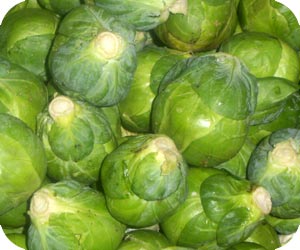|
What are
Vegetables? - Health Benefits, Vitamins and
Nutrition
The definition of a vegetable is an edible plant or
part of a plant which is used as part of a healthy
balanced diet and often accompanies meat or fish as
part of a main meal. A vegetable is defined as a
plant that is grown for food purposes. The part of
the plant which is usually eaten is either the root,
stem or leaf.
There are exceptions to the edible plant rule. For
example, mushrooms are considered by most to be a
vegetable, however, they are not part of a plant.
Therefore, the exact definition is sometimes a
little unclear but in the main vegetables do come
from plants. Examples of some of the most commonly
known vegetables which are grown from plants are:
carrots, cabbage, beans, broccoli, and cauliflower.
What Are Vegetables -
Fresh, Frozen or Canned?
- Health Benefits, Vitamins and Nutrition
Vegetables can be purchased
fresh, frozen or canned. The following provides
information about the varieties that are available
and the ways in which they benefit our health: |
|
|
What Are Vegetables -
Fresh / Raw
Fresh
vegetables are not necessarily the most healthiest type
that are available to buy. However, if you grow your own
vegetable plants then this is a different matter, providing
that you are picking your vegetables and cooking them
within a short time period, as opposed to leaving them
for a few days by which time these edible plants will have lost a lot
of their goodness and many of the nutrients that they would have
contained at the time of
picking.
This is something that people should look out
for when purchasing vegetables from the supermarket. We
should take into consideration the amount of time that
it takes for our vegetables to arrive in the
supermarkets when they have travelled from different
regions or countries. It is advisable to buy vegetables
that appear the most healthiest and have the latest
sell-by date on them.
|
|
 |
|
What Are Vegetables -
Frozen - Health Benefits, Vitamins and Nutrition
Frozen vegetables are just as
good for the body as fresh vegetables. It is arguably
possible that the frozen variety is in actual fact more
beneficial to our health and well-being as the
vegetables are often frozen much more quickly
after this edible plant has being picked as opposed to the amount of time that
it would have taken to reach our supermarkets from when
it was picked. This fact about
vegetables probably comes as great news to many
of us as frozen vegetables are often less expensive than
fresh, as well as a lot more convenient as it doesn't
involve washing, peeling or cutting the product in
preparation for eating. Also
frozen vegetables are not at risk of going off or going
past their sell-by date within a short time period.
What Are Vegetables
- Canned - Health Benefits, Vitamins and Nutrition
Canned vegetables are a good
alternative option to fresh or frozen vegetables to
consider when purchasing healthy
eating food for you and your family. However,
always try to avoid buying vegetables that are canned in
sugar syrup or brine as these products are not as
beneficial to your health as they are when kept in their
natural state in canned water. Always try to buy
vegetables which do not
contain added sugar or salt. These additional products
are not necessarily good for our health or a bodily
requirement. Instead, they are often added to perfectly
healthy vegetable produce to
make them more appealing to us, for example, adding
sugar to a product will give it a sweeter and more
desirable taste.
|
|
|
What Are Vegetables - Different Varieties
- Health Benefits, Vitamins and Nutrition
There are many different varieties
of vegetables, which are edible plants or part of a
plant, that are available, all of which provide
different nutrients and vitamins, and great health
benefits to the health of the human body. Some
vegetables can be eaten raw which is a fantastic way of
receiving the highest content of nutrients and vitamins
from any vegetables. There are many different ways to
cook vegetables including roasting, grilling, baking and
frying, and there are delicious recipes that will appeal
to everybody including kids, teenagers and adults.
Vegetables come in all different
sizes, shapes and colours such as green, purple, red and
yellow, and they are grown specifically for food
purposes! There are vegetables from all different
countries across the world which are grown and made available to us to
buy and taste -
ranging from the most unusual to the most oriental and
exotic vegetables - all rich in nutrients and vitamins, and
absolutely beneficial to our health and well-being.
|
|
|
|
What Are Vegetables? -
Health Benefits, Vitamins and Nutrition
Over the years we have learnt more
and more about the vital nutrients that these edible
plants known as vegetables
provide to the human body and the effects that they can
have us. For example, this particular food group can
help to slow down the ageing process, they can help to
improve the appearance of our skin!
There are varieties
which are packed highly with vitamins and nutrients that
can help to improve our immune systems and help our
bodies to fight against illness and disease - even some
of the most major diseases such as heart disease can be
prevented through eating the right diet. |
|
|
|
Health
experts and nutritionists believe that a well-balanced
diet that includes at least five portions of fruit and
vegetables per day will help to considerably improve our
lifestyles and ultimately extend our lives |
|
|
|
|